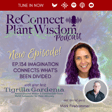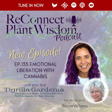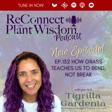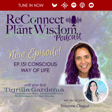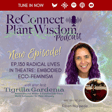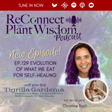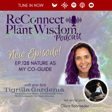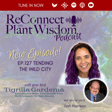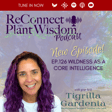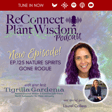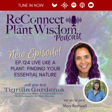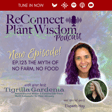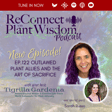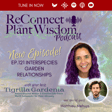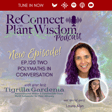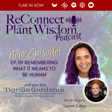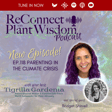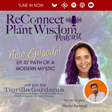
Ep.99 Why Hunter-Gatherers Were Less Stressed Than Us with Tommy Serafinski
What if the way we work is fundamentally out of sync with our nature?
In this episode, I sit down with Tommy Serafinski to explore how modern life has stripped us of the deep, intuitive connection to land that our ancestors once had. We dive into hunter-gatherer wisdom, seasonal rhythms, and attunement to the ecosystem, revealing how these natural cycles foster a sense of safety, balance, and ease—things we often feel are missing in our structured, productivity-driven world.
Hunter-gatherers weren’t constantly stressed about survival. They understood the landscape so well that gathering food was not a daily grind but a rhythmic, flowing relationship with the land. Meanwhile, we push through work in artificial cycles that ignore our bodies’ needs, making stress feel inevitable.
So how do we reclaim our natural rhythm? How do we break free from the myth that structure equals security?
This episode will shift how you think about time, work, and your own inner landscape. Tune in to rediscover the natural intelligence that already lives within you.
Topics Covered about Natural Rhythms and Productivity
➡️ Hunter-gatherer societies were less stressed than we are, not more.
➡️ Our obsession with structure and productivity disconnects us from natural rhythms.
➡️ True attunement comes from deep observation, relationship with the land, and trust in cycles.
➡️ Business and life can function like an ecosystem—responsive, adaptable, and deeply connected.
Chapters
00:00 Introduction
04:12 Transition to Outdoor and Science
14:23 Stone Age Economics and Modern Stress
20:43 Natural Rhythms for Enhanced Productivity
28:35 Shift your Personal Transformation
34:10 Self-Awareness and Tuning Into the Body
48:49 Control and Insecurity
Resources Mentioned
🌱 Tommy's Podcast: Conservation and Science
🌱 Personalized mentorship with me and the Plants
Expanded Show Notes
☝🏽ReConnect with Plant Wisdom podcast Ancient and modern knowledge from biology to spirituality about the wondrous ways plants help you lead a Naturally Conscious life.
Subscribe here and on your favorite podcast player.
👉🏽 Join the Naturally Conscious Community to nourish human-plant relationships
// Get to Know Me, Tigrilla //
// Let's Work Together //
// Shop from EcoConscious Partners //
Important Messages for Humanity on Gaia
More Partners: https://tigrillagardenia.com/shop/
Opening and Closing music by @Cyberinga and Poinsettia.
// Let's Connect on Social // Facebook | Instagram | LinkedIn | Youtube

